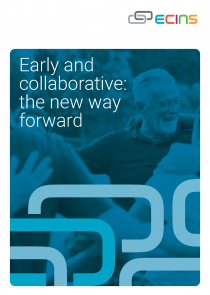Revolutionizing Social Care: The Power of a License-Free Case Management System
Forget costly licenses that hold your social care efforts back. Your team deserves tools built for real collaboration—without barriers. A license-free case management system lets you share vital information freely, speed up support, and connect across organisations like never before. Let’s explore how this shift can strengthen your community’s impact and make your work simpler and more effective.
The Impact of License-Free Systems

License-free systems are changing the way social care organizations operate, making tools accessible to all. They remove financial hurdles, allowing teams to focus on what truly matters: helping communities.
Breaking Cost Barriers
Imagine having more funds available because you’re not tied up in expensive licenses. That’s what a license-free system offers. It lets you allocate resources toward essential services rather than software costs. Many organizations have found that eliminating license fees frees up significant budget space, enabling them to expand their reach and impact.
This cost-effective approach not only saves money but also encourages broader participation. No longer do you have to limit the number of users due to budget constraints. With more team members involved, your organization can provide more comprehensive support. This inclusion fosters a stronger, more unified team ready to tackle community challenges head-on.
Enhancing Accessibility for Practitioners
When everyone on your team has access to the same tools, collaboration becomes seamless. Practitioners can easily share information, leading to faster decision-making and improved case outcomes. This accessibility means your team can work from anywhere, accessing the system from any device without restrictions.
With more practitioners able to access the system, the quality of care improves. Teams can communicate effectively, ensuring no detail is overlooked. This accessibility is crucial in today’s fast-paced environment, where timely responses can make all the difference in providing effective support.
Benefits of Cloud-Based Solutions

Cloud-based solutions offer more than just storage; they bring flexibility and security to social care organizations. These systems are designed to support practitioners while keeping data safe.
Security and Efficiency in Practice
With cloud-based systems, security is a top priority. Your data is protected with state-of-the-art measures, giving you peace of mind. Ninety-five percent of organizations report improved data security after moving to the cloud. This protection ensures sensitive information remains confidential, meeting compliance standards without extra hassle.
Efficiency is another significant benefit. Cloud systems streamline processes, reducing the time spent on administrative tasks. This allows your team to focus more on direct client care. By automating routine tasks, cloud solutions increase productivity, making your operations smoother and more responsive.
Fostering Collaborative Networks
Cloud-based platforms encourage collaboration by connecting practitioners across different locations and sectors. This connectivity enables the sharing of insights and resources, building a network of support around each client. Whether you’re in health, education, or social work, cloud solutions help bridge gaps between services.
Collaboration is key to addressing complex cases effectively. By fostering a network of support, your organization can deliver more holistic solutions to those in need. This interconnected approach amplifies your community impact, ensuring no one falls through the cracks.
Empowering Communities Through Collaboration
When organizations collaborate effectively, communities thrive. A collaborative approach ensures everyone works together to address challenges and create sustainable solutions.
Building Support Systems
Collaborative systems allow for the creation of comprehensive support networks. By linking various stakeholders, such as social workers, educators, and healthcare providers, communities can develop robust solutions to local issues. These networks provide a safety net, ensuring individuals receive the comprehensive care they need.
Building these systems involves more than just technology; it’s about fostering relationships and trust among all parties involved. By working together, organizations can pool resources and expertise, driving better outcomes for everyone.
Encouraging Community-Driven Solutions
Empowering communities to take charge of their solutions leads to sustainable change. By involving community members in decision-making, you encourage ownership and accountability. This approach ensures that solutions are tailored to the unique needs of the community, promoting long-term success.
Community-driven solutions are not only effective but also inspire a sense of pride and empowerment among residents. When people see the difference their input makes, it galvanizes further action and engagement. This empowerment is the cornerstone of building resilient, thriving communities.
🌟
The shift to license-free, cloud-based systems is more than a technological upgrade; it’s a paradigm shift in how social care is delivered. By removing barriers and fostering collaboration, these systems empower organizations and communities alike. Embrace this change to enhance your impact and support those who need it most.



